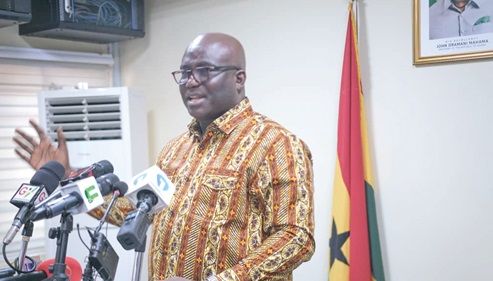The government says it will officially launch the Nkoko Nkitinkiti poultry initiative in the first week of October, following a delay earlier this year due to limited stakeholder consultation.
The programme, which aims to reduce Ghana’s heavy dependence on imported poultry, is expected to provide significant support to local farmers and help cut down the country’s poultry import bill—currently estimated at over $300 million annually.
Addressing the media in Accra after the launch of the second phase of the West Africa Livestock Marketing Programme (PACBAO), Food and Agriculture Minister Eric Opoku confirmed that preparations were nearing completion.
“Plans are at an advanced stage, and it is expected that by the first week of October, His Excellency the President will officially launch the programme,” Mr Opoku said. “The media will be invited, after which distribution will begin across various constituencies to reach beneficiary farmers.”
He added that the government was finalising the list of farmers who will benefit and completing procurement arrangements with suppliers.
The Nkoko Nkitinkiti Programme—loosely translated from Akan as “Compact Poultry”—is being presented as a flagship agricultural intervention. Officials say it will not only increase local poultry production but also create sustainable jobs, particularly for women and young people in rural areas.
The initiative had originally been scheduled for a July launch but was postponed after industry players raised concerns about a lack of engagement from the Ministry of Food and Agriculture.
Ghana’s poultry industry has struggled in recent years due to competition from cheaper imports, high feed costs, and limited access to financing. The government hopes the new programme will help address these issues while boosting domestic production and protecting livelihoods.













